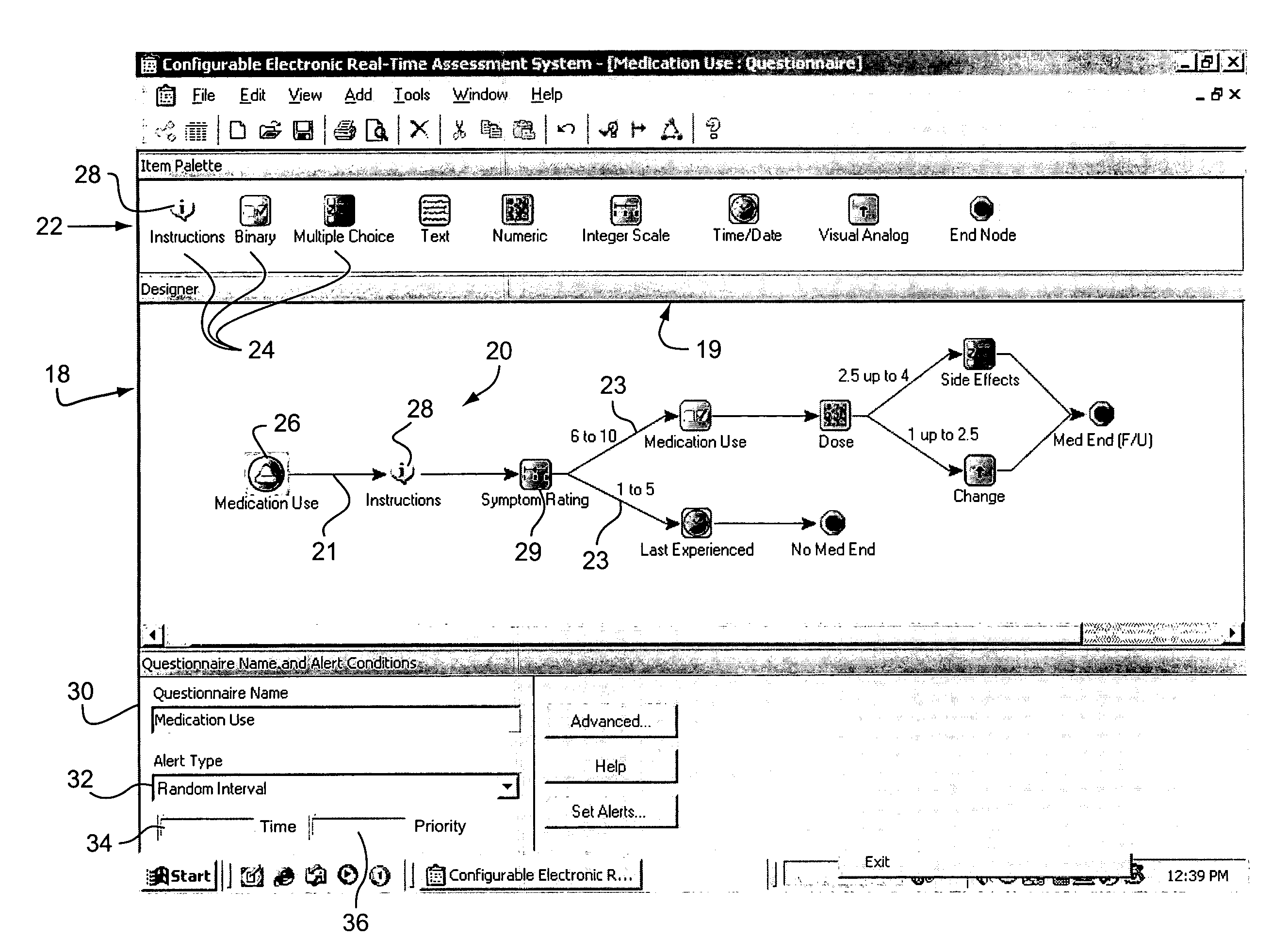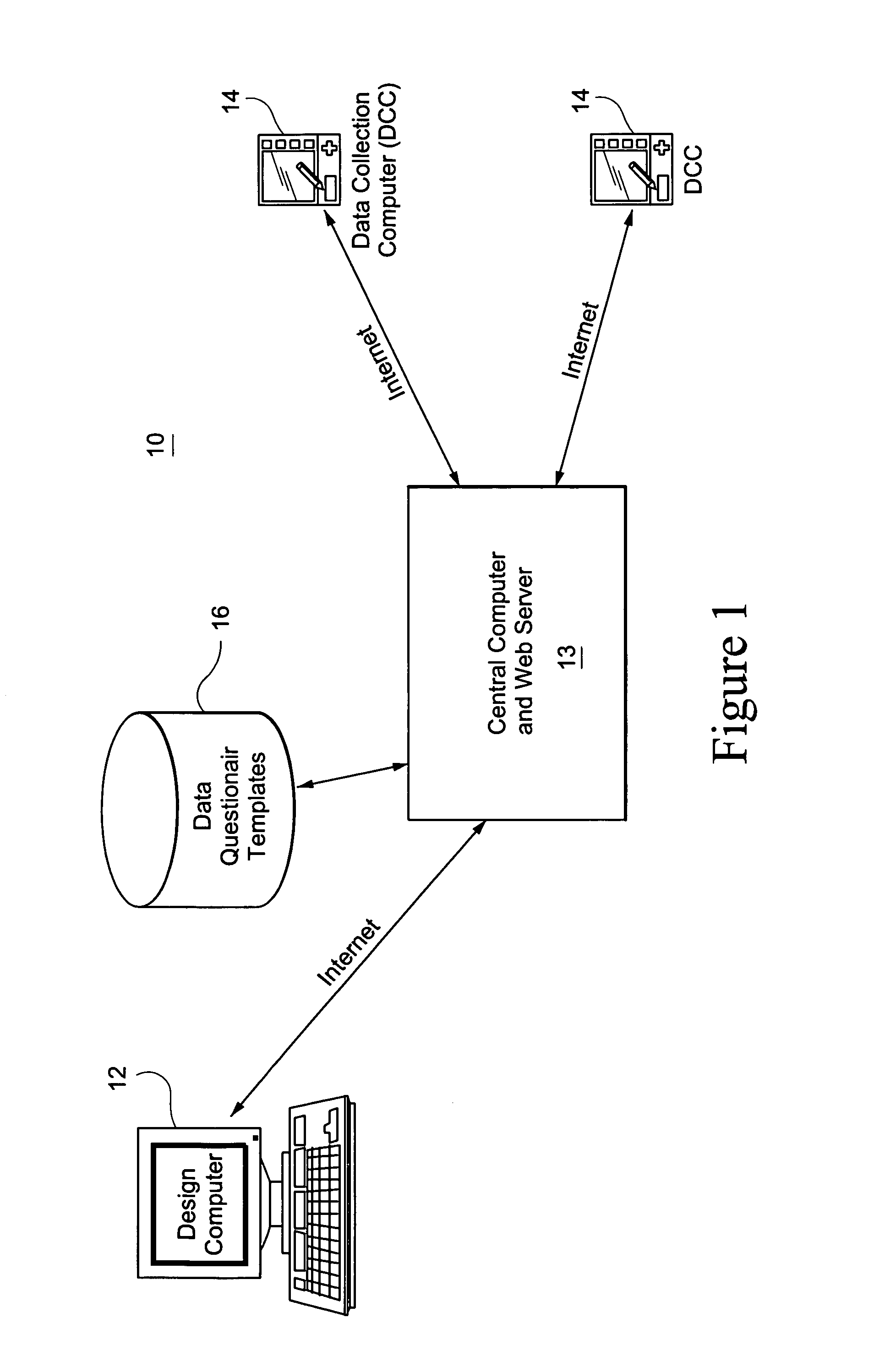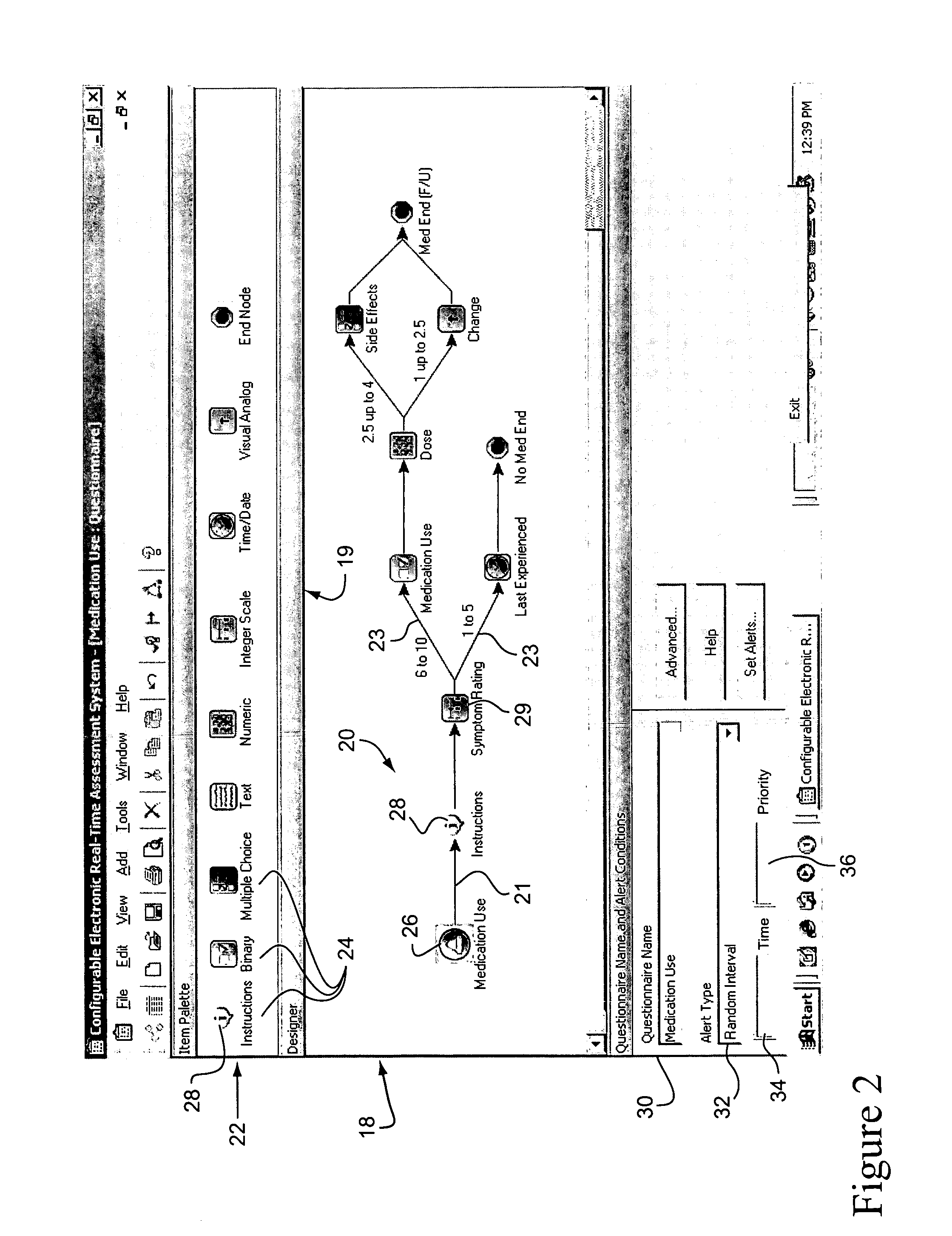Automated system and method to develop computer-administered research questionnaires using a virtual questionnaire model
a computer-administered and questionnaire technology, applied in the field of system for automating the development of computer-administered questionnaires, can solve the problems of lower completion rate of computerized vs. pencil-and-paper systems, inability of subjects to use computers to complete entries retrospectively, and the potential for greater complexity of monitoring procedures
- Summary
- Abstract
- Description
- Claims
- Application Information
AI Technical Summary
Benefits of technology
Problems solved by technology
Method used
Image
Examples
Embodiment Construction
[0015]FIG. 1 is a schematic diagram of a field protocol computer system 10 for developing and deploying field protocols for research using a virtual questionnaire model. The system may include a protocol design computer 12, e.g., a personal desktop computer, that is used by a researcher to develop questionnaires, alerts and data collection procedures to be computer-administered to research participants. Using the design computer, the researcher designs a series of questions, alerts and data collection prompts to implement a field protocol to be followed by one or more research participants.
[0016]Each field protocol may be tailored by the researcher for each participant or for groups of participants. For example, the researcher may program the questionnaires to prompt each participant to take the medication prescribed to that participant.
[0017]A central computer system 13 may be provided as a central source of questionnaire and field protocol templates, software for developing questi...
PUM
 Login to View More
Login to View More Abstract
Description
Claims
Application Information
 Login to View More
Login to View More - R&D
- Intellectual Property
- Life Sciences
- Materials
- Tech Scout
- Unparalleled Data Quality
- Higher Quality Content
- 60% Fewer Hallucinations
Browse by: Latest US Patents, China's latest patents, Technical Efficacy Thesaurus, Application Domain, Technology Topic, Popular Technical Reports.
© 2025 PatSnap. All rights reserved.Legal|Privacy policy|Modern Slavery Act Transparency Statement|Sitemap|About US| Contact US: help@patsnap.com



